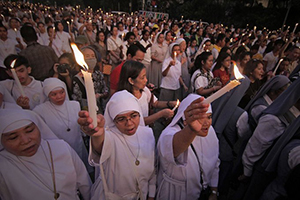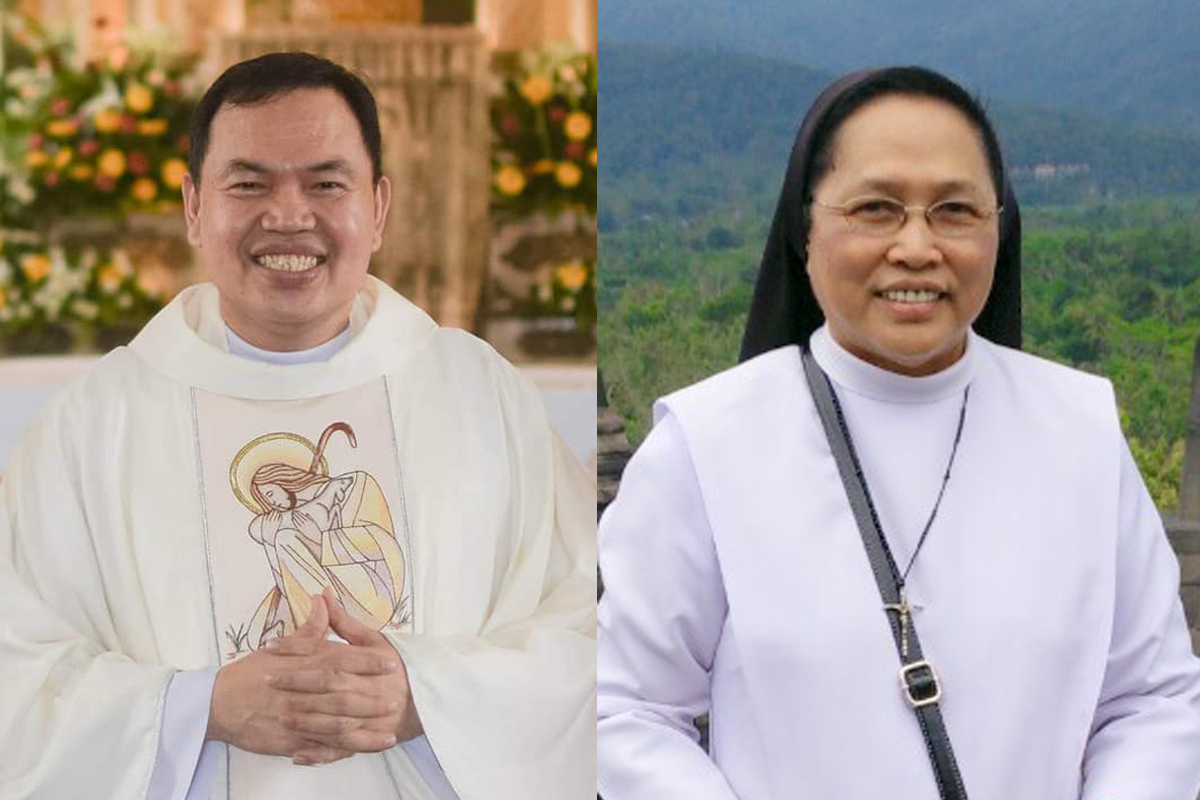
By Fr. Elias Ayuban Jr., CMF
March 8, 2022
Manila, Philippines
My previous piece, “In Defense of the Sacred“, has elicited some queries from consecrated men and women that I decided to address this message to them and to everyone who may find themselves in the same predicament. But please consider this reflection as purely personal. It never intends to supplant the fruit of one’s discernment, or that of his or her superior and community.
“Do not abandon prophecy!” are words from His Holiness Pope Francis in his Apostolic Letter of Nov. 21, 2014 addressed to all consecrated men and women on the occasion of the Year of Consecrated Life. “Prophets”, the Pope clarifies, “receive from God the ability to scrutinize the times in which they live and to interpret events: they are like sentinels who keep watch in the night and sense the coming of the dawn (cf. Is. 21:11-12). They are able to discern and denounce the evil of sin and injustice. They tend to be on the side of the poor and the powerless, for they know that God himself is on their side.”
The alarming unfolding of events in our country should impel us to make a stand in light of the teachings of our Mother Church. We cannot be bystanders for that is not our vocation as consecrated persons. We cannot be content to stand on the sidelines and to observe curiously from a distance. We can either stand aloof from reality or commit ourselves to change it. We have to choose. We cannot be mere expectators of reality (cf. Pope Francis’ message to the Claretians).
While we listen to everyone, our bias should be in favor of the afflicted if we are true to our vocation. To be neutral amidst disinformation favors the purveyors of fake news. To be silent amidst extrajudicial killings emboldens the perpetrators. To be indifferent when the future of our nation is in peril is a betrayal of our prophetic mission. To be mum when someone curses our God and malign our Pastors hurts our communion as a family. After all, to foster peace based on justice is not an option but an obligation that binds not only the clergy (can. 287, §1), but also consecrated men and women (can. 672).
We engage not because we adhere to a particular political color other than the color of the Gospel, but because there is the evangelical imperative that calls us to be vigilant and to care for one another: “Truly I tell you, whatever you did for one of the least of these brothers and sisters of mine, you did for me” (Mt. 25:40) while “the joys and the hopes, the griefs and the anxieties of the men of this age, especially those who are poor or in any way afflicted, these are the joys and hopes, the griefs and anxieties of the followers of Christ” (Vat. II, Gaudium et spes 1).
Nevertheless, the Gospel should always be our compass and not any ideology, albeit appealing. We think and act with the Church: “sentire cum ecclesia”. In leading people to God, we should be passionate for them. Our vows of poverty and chastity become more meaningful and life-giving when understood and lived from the optic of love and solidarity with humanity and creation. The vertical dimension of the cross represents our intimacy with the Divine, but it is not complete. Our religious consecration also requires the horizontal dimension which is our communion with the people. We journey with them even if, at times, we stumble with them.
The last time I engaged in this kind of conversation at the national level was during the snap election in 1986. It was also the time when I risked my limbs in front of an armored personnel carrier (APC tank) near Camp Crame, together with my fellow seminarians. It turned out to be one of the proudest moments in my life as a Filipino and as a future religious priest. Sadly, others want to revise our history and replace it with their own distorted narrative.
Thirty-six years after, we need to [re]claim our prophetic role. It may appear a daunting task due to our deep-seated frustrations with our politicians, and even some of our Church leaders, coupled with the fear to be ridiculed. It is safer to be silent and invoke the erroneous notion of the separation between the Church and the State, in the same way that many of our brothers and sisters prefer to embrace the promises of a populist leader without question than to engage into social analysis and to unwittingly share “fake news” than to verify its source and truthfulness.
Consecrated men and women are called to be prophets. Let us not give up our prophecy!
_______________________________________
Fr. Elias L. Ayuban, Jr., CMF, JCD, is currently the Provincial Superior of the Claretian Missionaries of the Philippine Province and Board Member of the Association of Major Superiors in the Philippines (AMRSP). He served as canon lawyer at the Vatican’s Congregation for Institutes of Consecrated Life and Societies of Apostolic Life and professor of canon law at the Claretianum in Rome.









